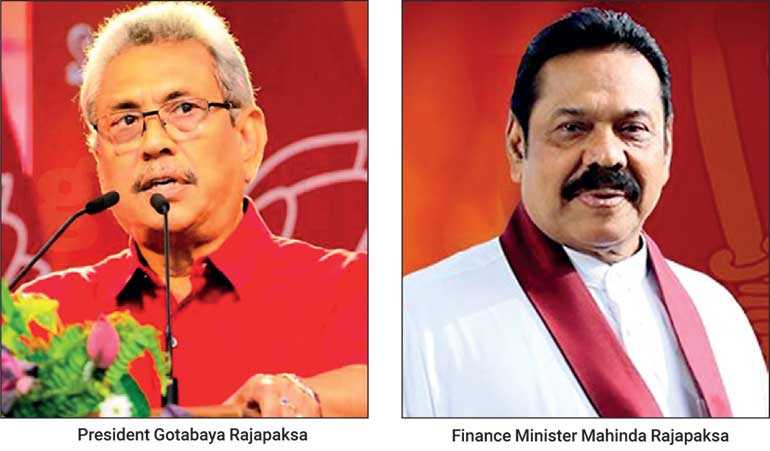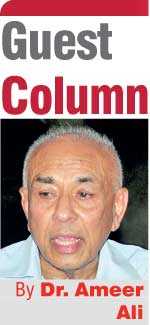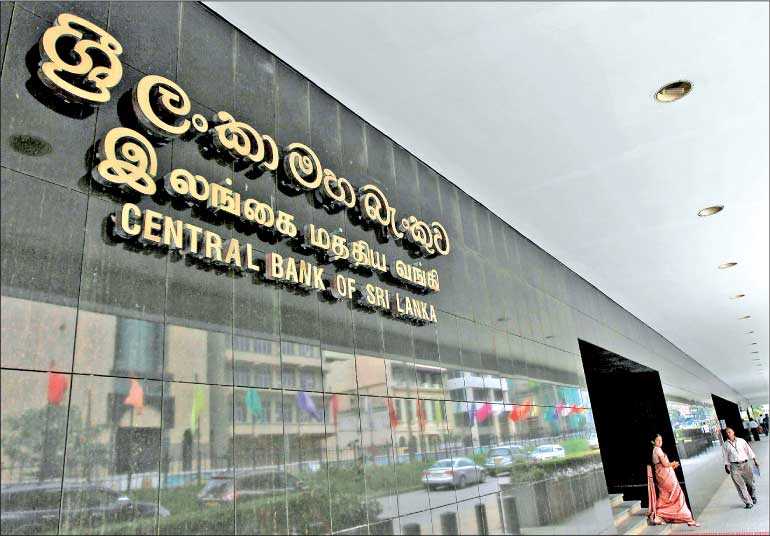Wednesday Feb 18, 2026
Wednesday Feb 18, 2026
Monday, 8 June 2020 00:20 - - {{hitsCtrl.values.hits}}

“The master-economist must possess a rare combination of gifts. He must reach a high standard in several different directions and must combine talents not often found together. He must be mathematician, historian, statesman, philosopher – in some degree. He must understand symbols and speak in words. He must contemplate the particular in terms of the general, and touch abstract and concrete in the same flight of thought. He must study the present in the light of the past for the purposes of the future.”—John Maynard Keynes 
COVID-19 has not gone away, but its deadly impact on peoples’ life and livelihood has been managed with different degrees of success in different countries, depending on the quality and availability of medical expertise, equipment and hospital facilities, and above all, on the willingness of people to abide by the advice and instructions issued by their governments and authorities. Hundreds of thousands had died and millions have been are infected.
While saving human life is the primary duty of the living, protecting the livelihood of the living is no less important. It is by destroying the livelihood of millions and dislocating most economies that Covid-19 has left the economic system in disarray. World economy is fast sliding into serious contraction, and already, negative quarterly growth rates have been registered in a few developed economies, an ominous sign for an impending global recession if not depression.
Lockdowns, curfews and other restrictions had caused a huge fall in world economic output, deprived millions of regular employment and steady income, increased mental distress and family violence, and hit government tax revenue. Growing economic pressure has therefore forced governments to methodically ease restrictions and encourage people to resume their normal activities, while accepting the fact that the virus is going to be with us for some time.
However, the challenge of economic recovery and ways to approach that recovery demand a lot more than simple tools of textbook economics and finance. It has to be approached from multiple fronts with pragmatism guiding the way. It is in that regard Keynes’ above quote becomes relevant.
In Sri Lanka, the road to recovery is going to be long, and the journey slow and tedious. However and regrettably, measures needed to be implemented are unfortunately getting entangled in the quagmire of a coercive political environment. The Central Bank has become the latest victim of political coercion. The pressured resignation of two independent members from the Central Bank Monetary Board, before their fixed term ends, and in favour of two presidential appointees, has not only compromised the independence of that vital institution, but also may send a wrong signal to international economic and monetary monitors that henceforth the bank may blunt its monetary tools to satisfy the demands of political masters.
Soon after Gotabaya Rajapaksa became President, his immediate task was to bring in his favourite past and present Generals in the army, who are more at home with commanding than consulting, to chair a number of taskforces dealing with civilian administration. The pandemic was a heavenly gift to GR to experiment his command model. Sometime back, I called that experiment as a “dress rehearsal” (Colombo Telegraph, 11 April 2020). That model is now spreading its tentacles into more vital institutions like the Central Bank and may have entered even the highest echelon of the Judiciary. Given the prevailing coercive political atmosphere, one is not sure whether even the unanimous dismissal of all seven Fundamental Rights Petitions by the five Supreme Court judges was free of any political pressure. However, the Petitioners have accepted the verdict and resolved to continue fighting for democracy. 
In the tenth century Tamil epic, Kamban’s Ramayanam, the poet describes the quality of ministers in Dhasarathan’s cabinet as follows: “Thammuyirkkuruthi ennaar thalai makan vekundapothum, vemmayaith thaanki neethi vidaathu ninruraikkum veerar” (They were brave men not afraid to speak the truth (or argue for justice) even if the king became angry. They did not care for their life). How many of our officers holding high position would defy unjust pressure from GR’s presidency?
Just as the judiciary is the last resort for the citizenry to safeguard their fundamental rights, freedom and dignity in a democratic polity, the Central Bank is the gate keeper of the national economy. In spite of criticisms by some economists that central banks have become an “institutional anachronism” in a tightly integrated and heavily financialised global economy, their role in protecting monetary stability in developing nations to keep prices and inflation under control cannot be under estimated. While fiscal instruments are subject to political manoeuvres, and therefore could be used erratically for populist purposes, monetary instruments are necessary to counter or minimise damages caused by reckless fiscal proclivities. This is why the independence of the Central Bank is sacrosanct. It seems that by putting his own men in the Monetary Board, GR is stepping in to regulate the nation’s monetary policy as well. In the COVID-19 induced depressed economy, independently observed facts and advice from Central Bank should flow through the ruling political circles and not the other way round.
The prevailing coercive political environment is also making economic recovery more difficult by intentionally keeping the people divided. Recovery requires the collective effort of every community in the country, which is not possible when the President and his “power cartel” are speaking to and on behalf of a particular majority. This was what Trump had been doing in the US since he became President. He failed to address the most fundamental and long running issue of institutional racism in that country which divided the society right in the middle. Economic misery, death and debility brought by COVID-19 compounded this division which finally exploded into open anger and violence. Sri Lanka has a lesson to learn from what is happening in that country. Without enlisting the support of the entire nation, economic recovery is going to be difficult and spasmodic.
This is not to argue that there is institutional racism in Sri Lanka, but there is certainly entrenched ethnic hatred perpetrated by certain institutions and individual leaders, which keep communities disunited, and some of them dispirited and disengaged. It was this hatred that drove the country to a civil war, and it was this hatred that led to the Easter Sunday bloody massacre too. In short, this hatred has been the bane of development for decades in this country. Unfortunately, in the minds of the President and his power cartel, reconciliation with affected communities seems to be of less importance than economic development. If that attitude is going to dominate the approach to economic recovery, and form the substance of the President’s command model, law and order will continue to consume resources that would otherwise be needed for development.
At least in one area, the united effort of all communities is vital; and that area is food production. Food insecurity is emerging as an international issue and several neighbouring countries are restricting food exports to feed their own people first. Sri Lanka is not self-sufficient in food and depends on imports. Future food shortage will increase, food prices and associated nutritional and health problems.
There is no shortage of arable lands, but access to those lands is severely restricted by bureaucratic controls driven by ethnic prejudices.
In the past, even when irrigation projects were designed and operated the motivating factor had been not to supply water to all deserving paddy lands within the project’s reach, but only to those lands belonged to selected communities.
The government and its administrators should get rid of this attitude and look at food production as a common issue deserving collective effort.
This is why I argue that economic recovery requires a multi-prong approach and economists and other experts should look outside the square to find solutions. Unless the political superstructure changes its myopic vision economic recovery is going to be arduous.

The writer is affiliated to School of Business and Governance, Murdoch University, Western Australia.